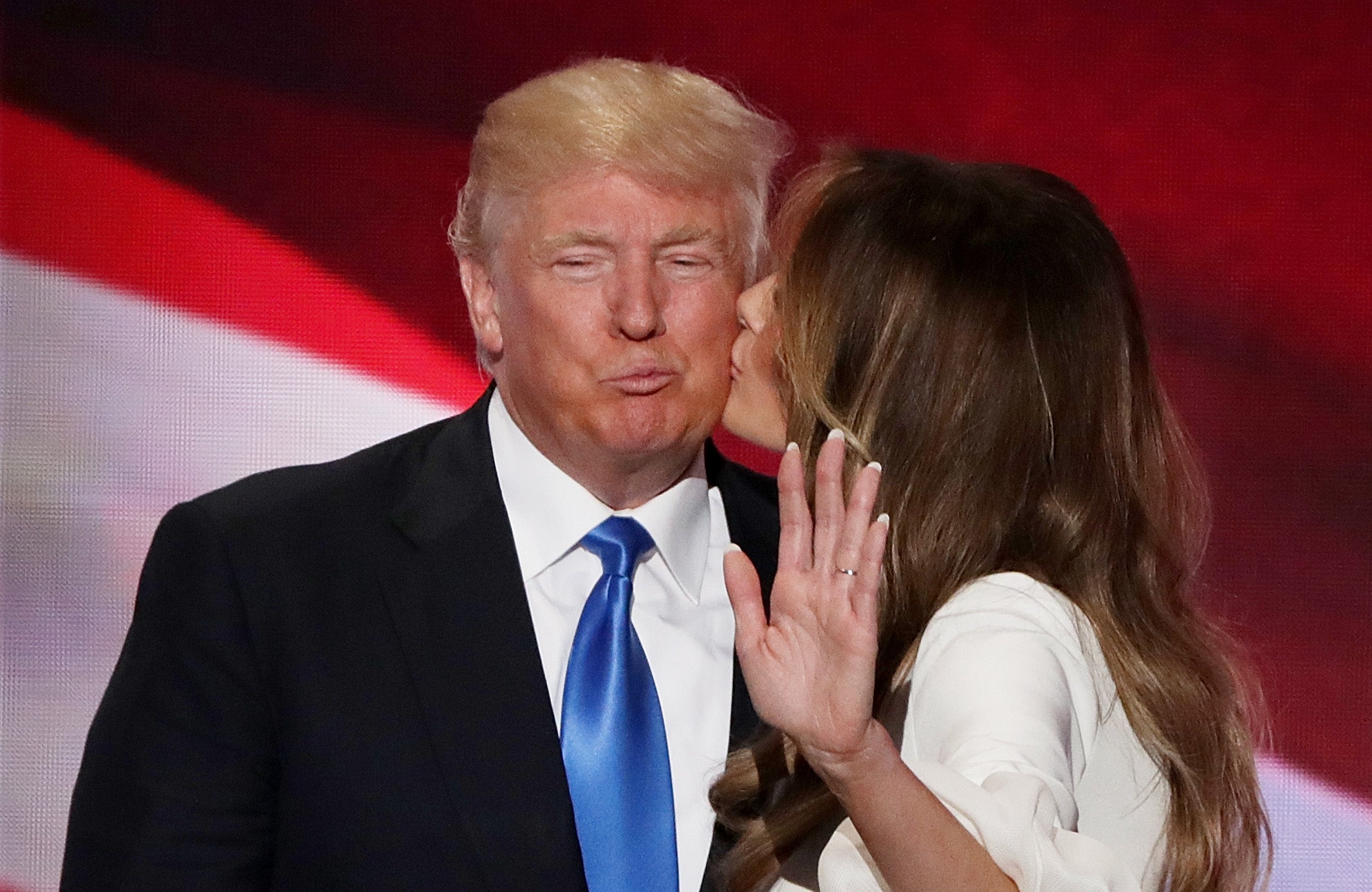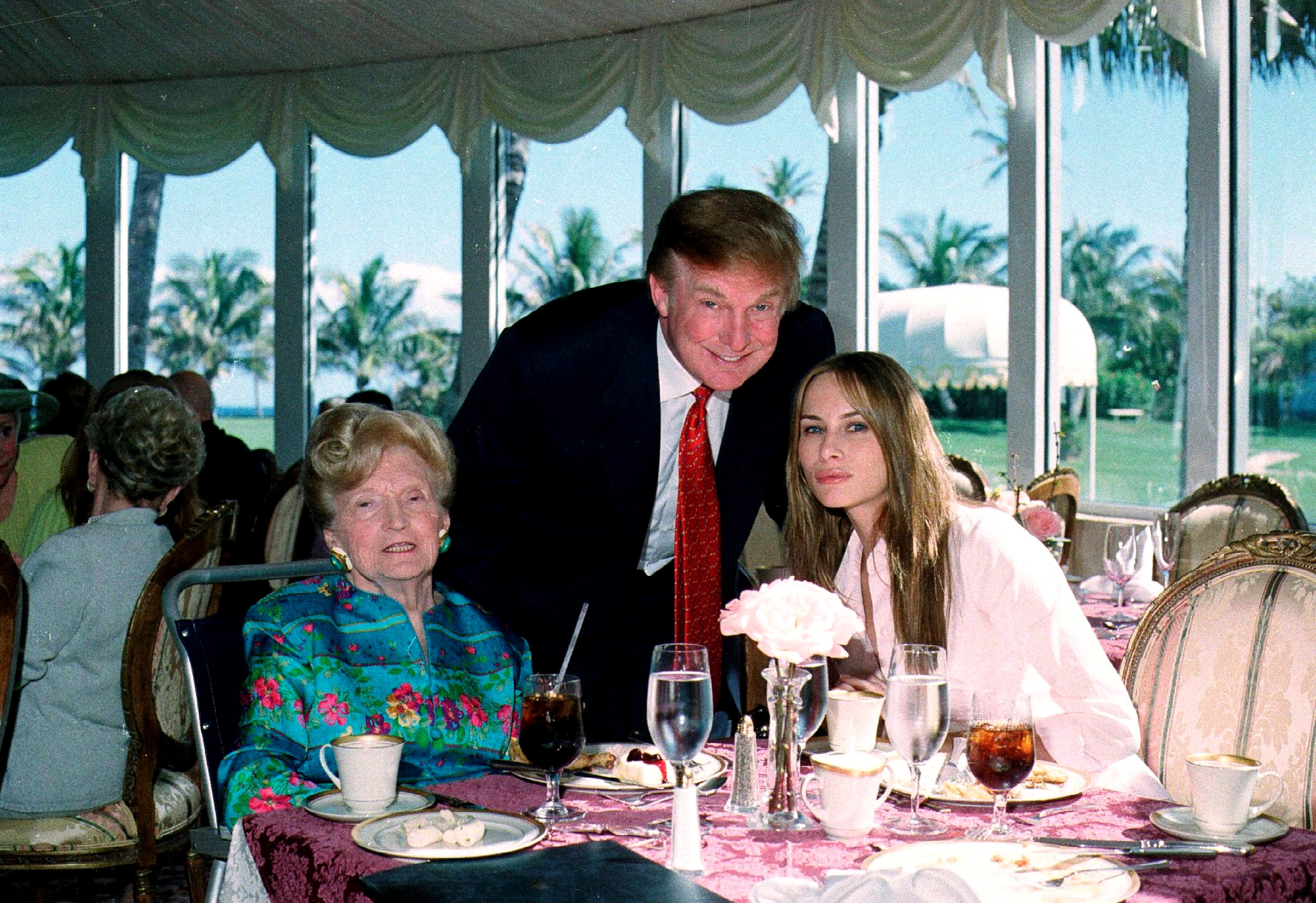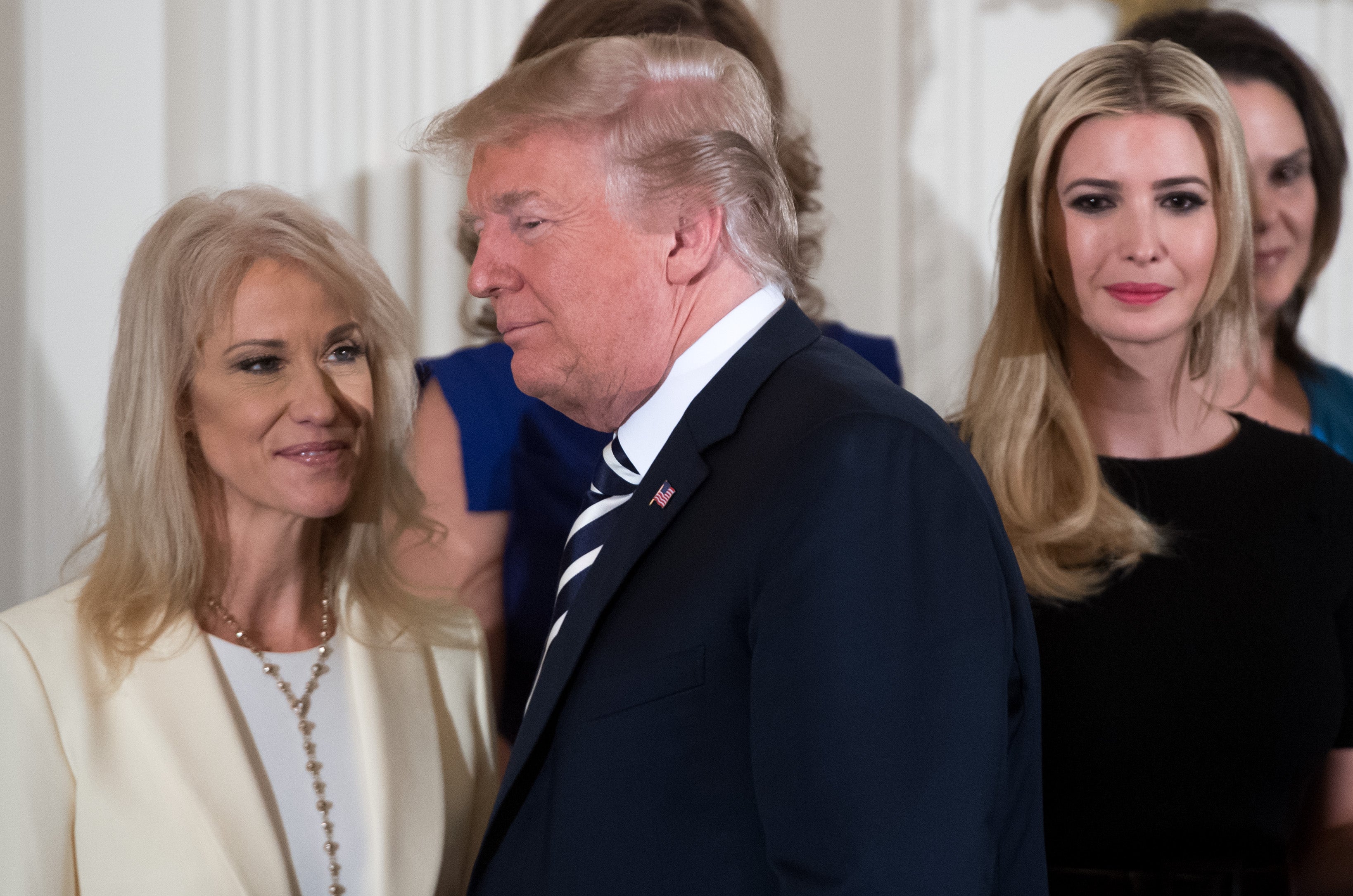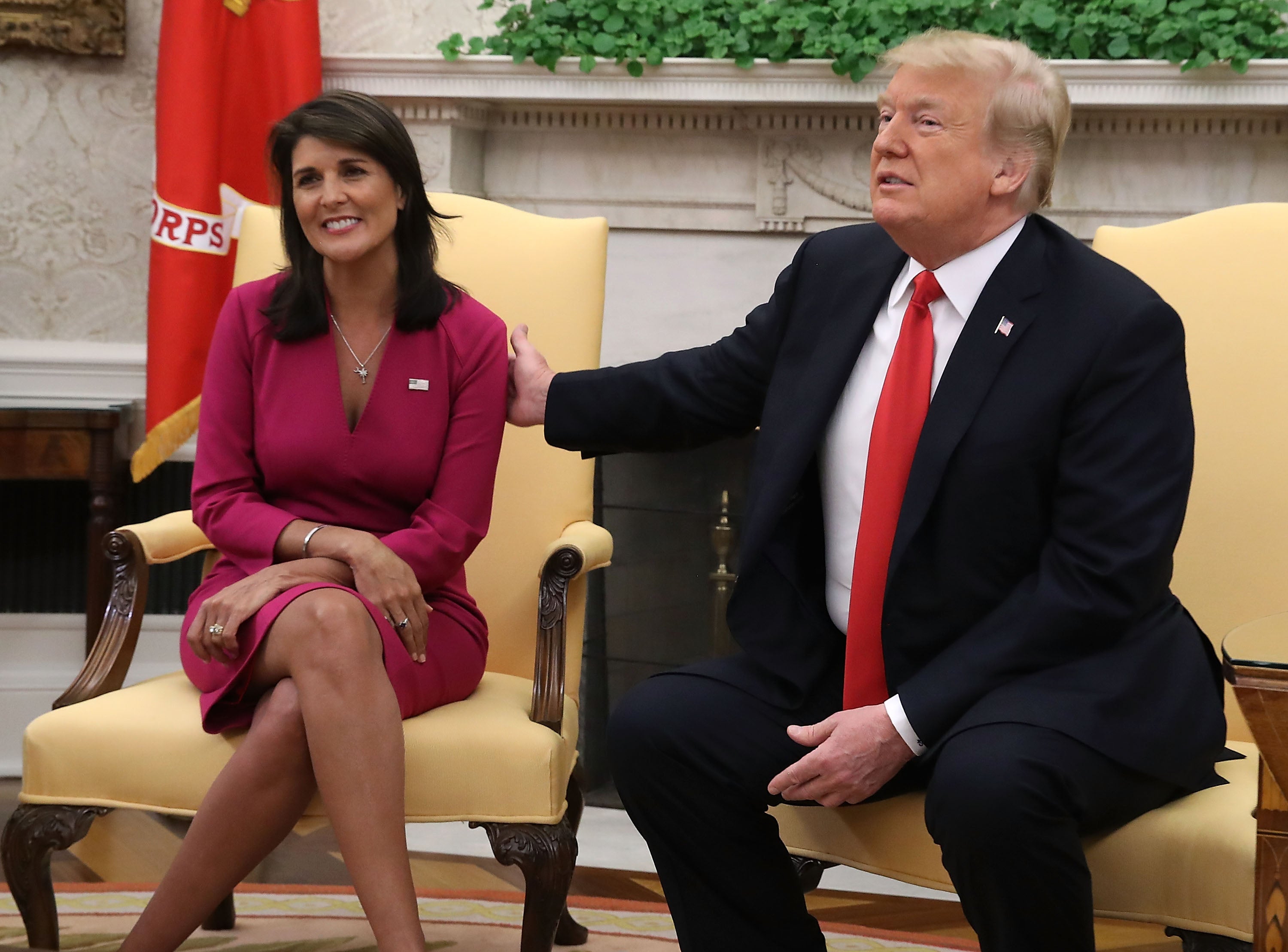Trump’s a sexist oaf – so why does he appeal to so many women?
Donald Trump is known to promote tough women into senior positions, yet he also has a rep as a boorish alpha male and has been back in court this week after being found liable last year for sexual abuse. Alex Hannaford unpicks the complicated ‘women problem’ of the man who would be president – again

The paradox couldn’t have been starker. Shortly after midnight on 16 January, ABC News called the Iowa Republican caucuses for Donald J Trump. Entrance poll results indicated that he had “trounced” the competition, the network said – adding that “election deniers and Maga had got him there”. But so had Republican women.
Ten hours later, Trump was in a courtroom in New York City waiting to find out what damages he would have to pay to settle a defamation claim by E Jean Carroll – a woman who, separate juries found, had been sexually assaulted and later defamed by him. It was a classic example of the troubling and complicated relationship that the businessman and former president seems to have had with women for his entire life – both personally and professionally.
The fact that women are winning the primaries for Trump (he won the votes of around half of both men and women in Iowa, far ahead of any other candidate) may have casual observers scratching their heads. Add to this the rumours that he’s considering a female running mate, and you might start to wonder what’s really going on inside the head of one of the world’s most notoriously sexist alpha males.
But for those more seasoned Trump watchers, this is no surprise at all. Debbie Walsh, director of the Center for American Women and Politics at Rutgers University, says that the moment of reckoning happened a long time ago – and in her view, the fact that Republican women will cast their vote for him isn’t that remarkable.
“When he ran against Hillary Clinton, and the Access Hollywood tape came out in which he described grabbing women’s genitalia ... when multiple women came forward [accusing him of sexual misconduct] – this seemed to be OK; what happens to women apparently didn’t matter much,” she says solemnly. “He now owns the Republican Party and there are only a handful of people [within that party] willing to stand up and say ‘We have a problem.’”
What’s more, Walsh says, evangelical women – who might find Trump extremely distasteful on a personal level – are also voting for him now because he put justices on the Supreme Court who supported their position on abortion. In their eyes, Trump is directly responsible for overturning Roe v Wade, the landmark legislation that had enshrined abortion protections in law. Trump’s support among white evangelicals in Iowa more than doubled from the same caucuses back in 2016, and his gains in the state were largest in other evangelical areas, too.
In Iowa, Trump secured 51 per cent of the vote, while Ron DeSantis and Nikki Haley secured 21 per cent and 19 per cent respectively. Haley struggled to attract the female vote – which is ironic considering she is the only woman in the race to be the Republican nominee. But as Walsh says, “The gender vote is not about the gender of the candidate. It’s about the issues.” And on the issues, Trump is seen as king.
There are two groups of women in Trump’s orbit: those in his personal life and those in his professional or political life. Nina Burleigh, author of The Trump Women: Part of the Deal, describes the first cohort – the “women in the House of Trump”, that is, Ivana, Marla, Ivanka, and Melania – as “vestal virgins in the temple of acquisition”. They are significant, she says, “for what they reveal about the emotional life of the forty-fifth president of the United States and his views on the role of women”.

In her book Too Much and Never Enough: How My Family Created the World’s Most Dangerous Man, Trump’s niece Mary wrote that she was “reminded of every family meal I’d ever attended during which Donald had talked about all of the women he considered ugly fat slobs ... That kind of casual dehumanisation of people was commonplace at the Trump dinner table.”
There was a clue to Trump’s view of women more generally in his 1997 book The Art of the Comeback, the follow-up to The Art of the Deal (1987). In it, he wrote: “Women have one of the greatest acts of all time. The smart ones act very feminine and needy, but inside they are real killers. The person who came up with the expression ‘the weaker sex’ was either very naive or had to be kidding. I have seen women manipulate men with just a twitch of their eye – or perhaps another body part.”
Burleigh says Trump grew up in the 1960s, an era that saw the rise of the women’s liberation movement. “And the paradox of that generation is while women were fighting for their civil rights, men were like ‘Yay, free love’. And so Trump had to put up with the rise of women. And he probably did it like he does a lot of things... grudgingly.”
Tony Schwartz, who co-authored The Art of the Deal with Trump, has said he suspects that Trump’s relationship with his father, Fred, accounts for the man the young Donald became. “His father was a very brutal guy ... very little emotional intelligence.” It’s perhaps telling that Trump rarely talks about the influence of his Scottish immigrant mother, also called Mary. According to Burleigh, she acquired a taste for wealth while working as a maid in the Andrew Carnegie Mansion. But while we know a lot about how Fred Trump shaped his son, we know very little about Mary’s role – and another biographer, Timothy O’Brien, said Trump only spoke about Mary after extensive prodding.
In 2008, Trump paid a flying visit to the cottage Mary grew up in on the island of Lewis in Scotland. She was a wonderful and beautiful woman, he told reporters. “I think this land is special, I think Scotland is special, and I wanted to do something special for my mother,” he said. “I feel very comfortable here. It’s interesting when your mother, who was such a terrific woman, comes from a specific location, you tend to like that location. I think I do feel Scottish.”
But Mary Trump suffered health problems later in life, which left Trump and his siblings dependent on Fred. In Too Much and Never Enough, Trump’s niece, a clinical psychologist, who calls Fred Trump a “high-functioning sociopath”, wrote that “Donald directly experienced the ‘not enough’ in the loss of connection to his mother at a crucial development stage, which was deeply traumatic.” And she outlines the “personality traits” that she says resulted in “displays of narcissism, bullying, grandiosity”.

In some ways, it’s the professional women in his orbit who raise more interesting questions about his views on the opposite sex. In The Art of the Deal, he described Trump Tower executive Louise Sunshine as being “as relentless a fighter as you’ll ever meet”. And in the same book, he claimed that engineer Barbara Res was “the first woman ever put in charge of a skyscraper in New York. She was thirty-three at the time... [and] took no guff from anyone.”
Burleigh notes that Trump’s former lawyer (and now nemesis) Michael Cohen bragged that the Trump Organization had a higher percentage of female employees than other companies, but she adds a caveat: “It’s privately held, so the truth is impossible to ascertain.”
It is certainly true that Trump made some very high-profile female hires when he was president – including “tough as boots” Kellyanne Conway, Sarah Huckabee Sanders, Stephanie Grisham, and Kayleigh McEnany. So is there a contradiction at play? One that posits the idea that a highly polarising figure, known for his sexist remarks and abhorrent behaviour, likes to surround himself with strong women? Or could it be that if there’s one thing Trump likes better than controlling and besting powerful men, it’s controlling and besting powerful women? “I think probably there’s nothing he likes better than besting anyone of any gender,” says Burleigh.
Just whatever you do, don’t cross him. Ask Omarosa Manigault Newman what happens when you do. Newman, a feisty businesswoman who first appeared on The Apprentice, later worked for Trump in the White House as communications director for the Office of Public Liaison. When she left a year later, she became one of the president’s fiercest critics, accusing him in a tell-all memoir of using racist and misogynistic language. It didn’t take Trump long to retaliate: “When you give a crazed, crying lowlife a break, and give her a job at the White House, I guess it just didn’t work out. Good work by General Kelly [his chief of staff] for quickly firing that dog.”
Whether you once worked for him or you never worked for him at all, it seems that you’re equally fair game. He described Democratic senator Elizabeth Warren as having “a nasty mouth”, and he has called various other women “fat pigs” and “disgusting animals”. Walsh, from the Center for American Women and Politics, says denigrating people has become Trump’s shtick. “He’s unrelenting.”

The solution is to back him no matter what, even if you’re no longer in his orbit. Conway seemed to disappear into obscurity after Trump lost to Joe Biden in 2020, reappearing as an apologist on Fox News. What will happen to Haley remains to be seen. Some say her endgame all along has been to become Trump’s running mate; that she only ever ran because she wanted the vice-presidential ticket.
When asked to comment as the only woman in the race, she refused to condemn Trump’s sexual abuse of Carroll – and pressed on whether she’d accept the job if it were offered to her, Haley said: “I don’t play for a second ... I’m not going to start now.” However, this week Trump has renewed his attacks on Haley, using typical dog-whistle-style racist tactics to do so: “Anyone listening to Nikki ‘Nimrada’ Haley’s wacked out speech last night, would think that she won the Iowa Primary. She didn’t, and she couldn’t even beat a very flawed Ron DeSanctimonious, who’s out of money, and out of hope,” he posted about his rival on Truth Social.
In response, Haley released her own video, showing all the times that Trump had praised her in the past.
According to the Center for American Women and Politics, in every presidential election since 1996, a majority of women have preferred the Democratic candidate. In 2016, a majority of women favoured Clinton, while a majority of men voted for Trump, who ended up winning.
So the question is, what will Democrats do in the run-up to November’s election to ensure that more women vote for Biden – and even, perhaps, persuade some Republican women to join them? Walsh thinks abortion could be a big driver – “particularly for college-educated Republican women who are more likely to be pro-choice in some form. That could be a driving issue. Because,” she says, “this is a right that was taken away – and it’s harder losing something you once had.”
She also thinks they could remind female voters of something else: “Of the chaos that went on for four years.”






Join our commenting forum
Join thought-provoking conversations, follow other Independent readers and see their replies
Comments